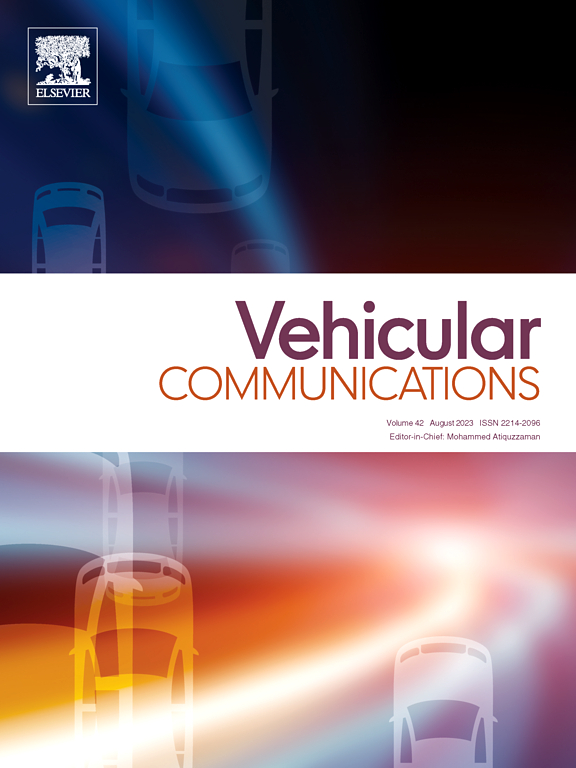Energy and experimental trust-based task offloading in the domain of connected autonomous vehicles
IF 6.5
2区 计算机科学
Q1 TELECOMMUNICATIONS
引用次数: 0
Abstract
Task offloading among connected and autonomous vehicles (CAVs) has recently gained much attention. The current literature in this context mostly optimizes only the criterion of energy and latency. Further, issues like connectivity and spontaneous attitude of selflessness have remained unexplored despite their importance and probable contribution to preserving vehicles' energy and reducing overall delay in completing the tasks. Therefore, the key objectives of the present study are maximization of residual energy and percentage of successful offloading, as well as minimization of energy consumption and delay. We have also considered trust, which has two components; efficiency and certainty. Efficiency is defined as the inverse of the estimated time duration required to complete the execution of the current task based on the history of the previous sessions. Certainty is related to the stability of the connection between the server and task off-loader vehicles and the selfless cooperation of the server, as revealed from the history of communication with the off-loader. Experimental results show that our proposed method of offloading tasks based on energy and experiential trust (OTEET) increases the offload success percentage and reduces cost by approximately 40%, which can be considered a significant improvement.
互联自动驾驶汽车领域中基于能量和实验信任的任务卸载
最近,自动驾驶汽车(cav)之间的任务卸载备受关注。目前在这方面的文献大多只优化了能量和潜伏期的标准。此外,连通性和自发的无私态度等问题仍未得到探索,尽管它们对节省车辆能源和减少完成任务的总体延迟具有重要意义和可能的贡献。因此,本研究的关键目标是剩余能量和成功卸载百分比的最大化,以及能量消耗和延迟的最小化。我们还考虑了信任,它有两个组成部分;效率和确定性。效率的定义是根据以前的会话历史完成当前任务所需的估计时间的倒数。从与卸载器的通信历史可以看出,确定性与服务器与任务卸载器之间连接的稳定性以及服务器的无私合作有关。实验结果表明,基于能量和经验信任(OTEET)的任务卸载方法提高了任务卸载成功率,降低了约40%的成本,是一种显著的改进。
本文章由计算机程序翻译,如有差异,请以英文原文为准。
求助全文
约1分钟内获得全文
求助全文
来源期刊

Vehicular Communications
Engineering-Electrical and Electronic Engineering
CiteScore
12.70
自引率
10.40%
发文量
88
审稿时长
62 days
期刊介绍:
Vehicular communications is a growing area of communications between vehicles and including roadside communication infrastructure. Advances in wireless communications are making possible sharing of information through real time communications between vehicles and infrastructure. This has led to applications to increase safety of vehicles and communication between passengers and the Internet. Standardization efforts on vehicular communication are also underway to make vehicular transportation safer, greener and easier.
The aim of the journal is to publish high quality peer–reviewed papers in the area of vehicular communications. The scope encompasses all types of communications involving vehicles, including vehicle–to–vehicle and vehicle–to–infrastructure. The scope includes (but not limited to) the following topics related to vehicular communications:
Vehicle to vehicle and vehicle to infrastructure communications
Channel modelling, modulating and coding
Congestion Control and scalability issues
Protocol design, testing and verification
Routing in vehicular networks
Security issues and countermeasures
Deployment and field testing
Reducing energy consumption and enhancing safety of vehicles
Wireless in–car networks
Data collection and dissemination methods
Mobility and handover issues
Safety and driver assistance applications
UAV
Underwater communications
Autonomous cooperative driving
Social networks
Internet of vehicles
Standardization of protocols.
 求助内容:
求助内容: 应助结果提醒方式:
应助结果提醒方式:


